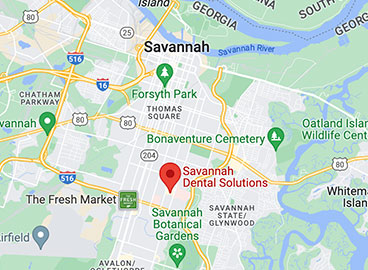TMJ stands for Temporomandibular Joint Syndrome. It is a fairly common problem that people face with the joint that connects the jaw to the cheekbone. If you have been recently diagnosed with TMJ, it can be overwhelming to learn more about the condition. Here is a simplified overview of everything that you need to know about TMJ.
Two Temporomandibular Joints
You have two temporomandibular joints, as you have one on each side. It is possible to experience pain in just one or both of the joints at the same time. If you experience pain in one joint, it doesn’t necessarily mean that you will ever experience pain in the other.
TMJ Symptoms
If you have TMJ, you might experience soreness or pain in your jaw, mouth pain, tightness in your face, and headaches. Depending on the severity of the symptoms, you might experience difficulty or pain when chewing food, lockjaw, or popping noise that you can hear when you open and close your mouth. Since the jawbone and ears are so connected, it is possible that you will experience some symptoms in your ears. This includes ringing, ear pain, and eye pain.
TMJ Causes
There are many different causes of TMJ. Multiple conditions can be contributing to your TMJ symptoms. This includes tooth misalignment, jaw injuries, genetics, arthritis, and bad posture. Stress can contribute to your TMJ symptoms, especially when teeth grinding or jaw clenching is present. Your dentist will complete a thorough assessment to see what is causing your TMJ and find the appropriate solutions.
TMJ Treatment
For TMJ pain relief, it is important to seek out the advice of a dental professional who will be able to evaluate your condition. Taking over the counter pain relievers often isn’t enough to manage the chronic pain associated with TMJ. Your dentist may recommend the use of a custom dental appliance to help reduce the strain on the joint and eliminate the symptoms. Botox and steroid injections can also be used to manage pain and discomfort.
Depending on what solutions you’ve tried and the severity of the symptoms, your dentist might recommend other types of treatment. Working with a physical therapist can work to reduce the pain and improve function for the temporomandibular joint. They may recommend to use compresses to help.
In addition, some TMJ cases require surgery to treat. Often surgery is only recommended as a last result. An arthrotomy is an open joint surgery. A modified condylotomy is a type of controlled fracture that can help restore normal disk position and immediately stop pain.
For the best Savannah TMJ treatment, it is best to work with a dentist that specializes in TMJ. They will have the best understanding of the condition and know about the most innovative treatment opportunities for the condition. For some patients, managing TMJ symptoms is a chronic situation. However, for others, stress and recent injury can cause the condition to become symptomatic.
Ready to Get Started?
If you are looking for TMJ pain relief, contact Savannah Dental Solutions today at (912) 354-1366. Our friendly, knowledgeable staff will guide you through the process of diagnosing and managing the symptoms of TMJ.



